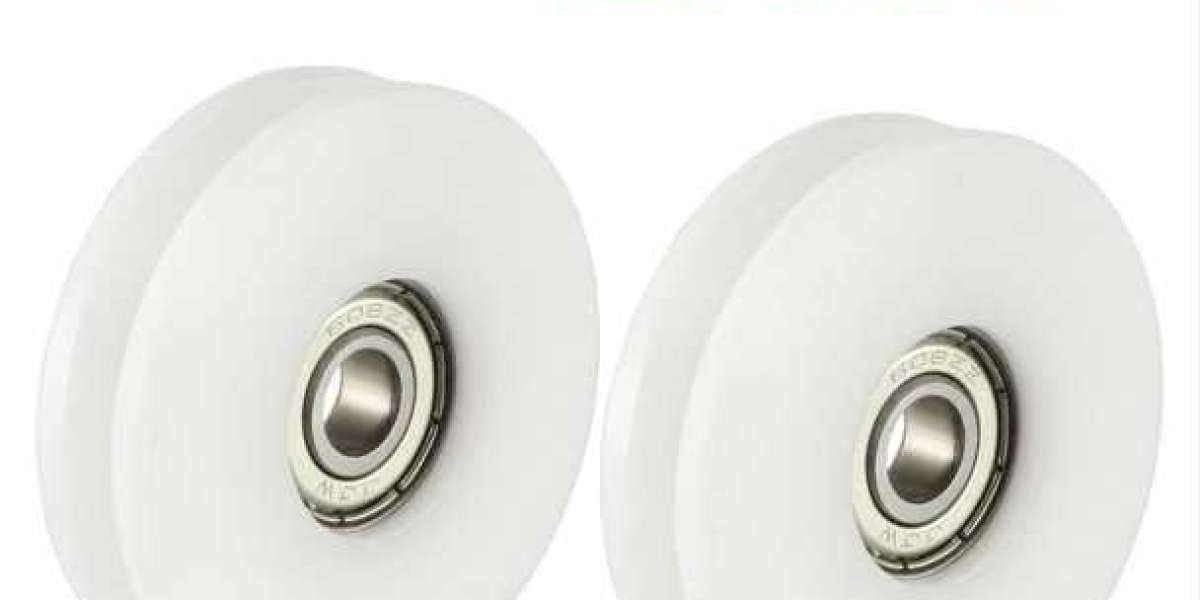Conveyor systems are essential in industries like manufacturing, warehousing, and logistics, where the movement of goods and materials is a core part of the operation. At the heart of these systems are pulleys, which guide, lift, and move the conveyor belts. While metal pulleys have been traditionally used, plastic pulleys are increasingly becoming the material of choice. Their unique properties, including their lightweight, cost-effective nature, and durability, make them ideal for many applications.
What Are Plastic Pulleys?
Plastic pulleys are mechanical components made from a variety of synthetic polymers, such as Nylon, Polyamide (PA), and Polyoxymethylene (POM). These materials are chosen for their durability, low friction, and wear resistance, making them suitable for high-performance and long-lasting applications. Plastic pulleys are commonly used in conveyor systems, where they help to guide and support the movement of conveyor belts and reduce the wear on the system components.
Unlike traditional metal pulleys, plastic pulleys are significantly lighter, which helps to reduce energy consumption and extend the lifespan of the entire conveyor system. They are also resistant to corrosion, making them ideal for environments where moisture or chemicals may cause damage to metal components.
The Key Advantages of Plastic Pulleys in Conveyor Systems
There are several reasons why plastic pulleys are increasingly being used in conveyor systems. Let's break down the key advantages of using plastic pulleys over their metal counterparts:
1. Lightweight Design
Plastic pulleys are much lighter than metal pulleys. The reduced weight makes them easier to install, maintain, and replace. The lightweight nature of plastic pulleys also results in reduced energy consumption in conveyor systems, as less effort is required to move the pulley and the connected belt.
Hune Tip: The lightweight design of Hune plastic pulleys enhances the overall efficiency of your conveyor system, reducing operational costs over time.
2. Corrosion Resistance
Unlike metal pulleys, plastic pulleys are naturally resistant to corrosion, rust, and other forms of degradation that often occur in wet or chemical-laden environments. For industries like food processing, pharmaceuticals, and mining, where moisture and chemicals are common, plastic pulleys offer excellent durability and longevity.
Hune Tip: For environments exposed to harsh chemicals or extreme conditions, Hune's corrosion-resistant plastic pulleys are a great solution to improve conveyor system reliability.
3. Low Friction and Wear Resistance
One of the most significant advantages of plastic pulleys is their low friction properties. Plastic materials such as Nylon and POM are naturally self-lubricating, meaning that plastic pulleys experience less wear over time compared to metal pulleys. This results in less maintenance and a longer lifespan for both the pulley and the conveyor belt.
Hune Tip: By incorporating self-lubricating materials, Hune plastic pulleys ensure smooth operation, reducing the likelihood of jams and extending the operational life of the entire system.
4. Cost-Effective
While plastic pulleys can be more expensive upfront than metal pulleys, they often provide better cost-efficiency in the long run. Their durability, reduced maintenance needs, and energy savings make them a more affordable solution over the course of their lifespan.
Hune Tip: Hune's plastic pulleys offer a competitive cost-benefit ratio, ensuring that you get the best value for your investment without compromising on performance.
5. Noise Reduction
Plastic pulleys generate significantly less noise compared to metal pulleys, which can contribute to a quieter work environment. In industries where noise control is essential, such as in office environments or healthcare settings, plastic pulleys are an ideal choice.
Hune Tip: If noise reduction is a priority in your operation, consider using Hune plastic pulleys designed to operate quietly and smoothly, contributing to a more pleasant workplace.
The Impact of Plastic Pulleys on Conveyor System Efficiency
Plastic pulleys play a critical role in enhancing the efficiency of conveyor systems.
1. Reduced Maintenance and Downtime
One of the major reasons industries are turning to plastic pulleys is the reduced maintenance they require. Since plastic pulleys are less prone to corrosion and wear, they need fewer repairs and replacements. This results in reduced downtime and improved system availability.
Hune Tip: With Hune plastic pulleys, you can expect reduced downtime and fewer maintenance intervals, which directly contributes to better productivity.
2. Increased Operational Life
Plastic pulleys have a longer operational life compared to their metal counterparts due to their superior resistance to wear, chemicals, and environmental factors. This longevity reduces the need for frequent replacements, saving money and time in the long term.
Hune Tip: By choosing Hune plastic pulleys, you can maximize the operational life of your conveyor system, ensuring continuous and reliable performance for years.
3. Enhanced Energy Efficiency
As previously mentioned, plastic pulleys are lighter than metal pulleys, meaning less energy is required to operate the conveyor system. This reduces the overall energy consumption, making the system more environmentally friendly and cost-effective.
Hune Tip: The energy-efficient nature of Hune plastic pulleys translates to a greener operation with reduced carbon emissions and lower energy costs.
Choosing the Right Plastic Pulley for Your Conveyor System
When selecting the appropriate plastic pulley for your conveyor system, it's important to consider several factors:
Load Capacity: Ensure the pulley material is strong enough to handle the loads your system will carry. Hune offers pulleys in a range of materials with varying strengths to match your system's requirements.
Environmental Conditions: For wet, humid, or chemically harsh environments, corrosion-resistant plastic pulleys are essential. Consider materials like Polyamide (PA) or Polyoxymethylene (POM).
Size and Configuration: The size of the pulley should be matched to the dimensions of the conveyor system and belt type. Hune provides pulleys in various sizes and configurations for custom needs.
Speed and Application: For high-speed systems, low-friction plastic pulleys such as those made from Nylon or POM are ideal.
Plastic pulleys are playing an increasingly important role in improving the performance and efficiency of conveyor systems across various industries. Their lightweight design, corrosion resistance, low friction, and cost-effectiveness make them an excellent choice for modern conveyor systems. By choosing Hune plastic pulleys, you can enhance your conveyor system's reliability, longevity, and energy efficiency.
At https://www.hunepulley.com/product/plastic-bearing-pulley/ushaped-bearing-pulley/ , we provide high-quality plastic pulleys designed to meet the demanding needs of your operations. Whether you're working in a chemical plant, food processing facility, or a warehouse, Hune's plastic pulleys can improve your conveyor system's performance and help you achieve greater operational efficiency.



